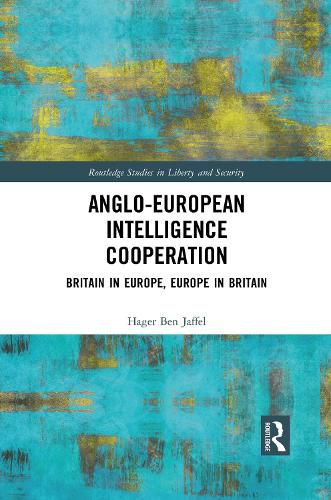Readings Newsletter
Become a Readings Member to make your shopping experience even easier.
Sign in or sign up for free!
You’re not far away from qualifying for FREE standard shipping within Australia
You’ve qualified for FREE standard shipping within Australia
The cart is loading…






This book investigates everyday practices of intelligence cooperation in anti-terrorism matters, with a specific focus on the relationship between Europe and Britain.
The volume examines the effective involvement of British anti-terrorism efforts in European cooperation arrangements, which until now have been overshadowed by the UK-US ‘special relationship’ and by political debates that overstate the divide between Britain and continental Europe. In arguing that British intelligence has always had a European dimension, it provides a distinct perspective to the study of intelligence cooperation and the role of British intelligence therein. Mobilizing a ‘field theory’ approach, the book provides an original contribution to the understanding of intelligence cooperation by investigating everyday bureaucratic practices of ‘ground-level’ security professionals and police forces, embedded in a European ‘field’ structured around the exchange of anti-terror intelligence. It also accounts for the drivers behind cooperation by using ‘field analysis,’ which explains the trajectory and positioning of actors according to their ‘capitals’ rather than necessities dictated by threats or state decisions.
This book will be of much interest to students of Security Studies, International Political Sociology, Intelligence Studies, and International Relations in general.
$9.00 standard shipping within Australia
FREE standard shipping within Australia for orders over $100.00
Express & International shipping calculated at checkout
This book investigates everyday practices of intelligence cooperation in anti-terrorism matters, with a specific focus on the relationship between Europe and Britain.
The volume examines the effective involvement of British anti-terrorism efforts in European cooperation arrangements, which until now have been overshadowed by the UK-US ‘special relationship’ and by political debates that overstate the divide between Britain and continental Europe. In arguing that British intelligence has always had a European dimension, it provides a distinct perspective to the study of intelligence cooperation and the role of British intelligence therein. Mobilizing a ‘field theory’ approach, the book provides an original contribution to the understanding of intelligence cooperation by investigating everyday bureaucratic practices of ‘ground-level’ security professionals and police forces, embedded in a European ‘field’ structured around the exchange of anti-terror intelligence. It also accounts for the drivers behind cooperation by using ‘field analysis,’ which explains the trajectory and positioning of actors according to their ‘capitals’ rather than necessities dictated by threats or state decisions.
This book will be of much interest to students of Security Studies, International Political Sociology, Intelligence Studies, and International Relations in general.